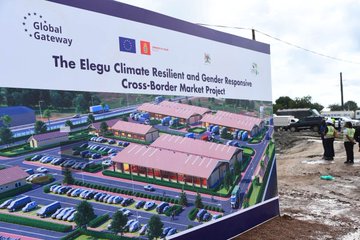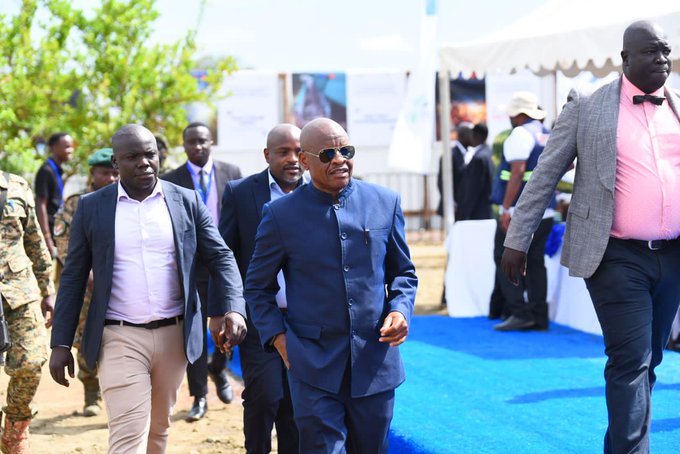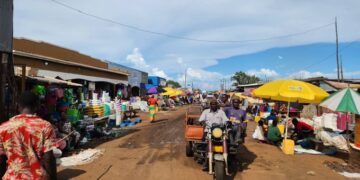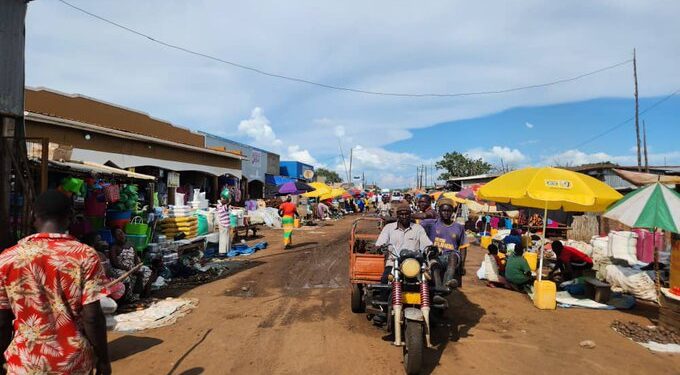Elegu, Amuru District – Uganda’s northern trade gateway to South Sudan, is set for a major upgrade following the groundbreaking of the Elegu Climate Resilient Cross-Border Market Project, designed to expand regional trade while tackling climate change challenges.
Located along the strategic Elegu–Nimule corridor, the market has become one of Uganda’s busiest exit points for informal exports. Government data shows trade volumes rose from USD 50.38 million in 2018 to USD 111.3 million in 2022. In the same year, 1.35 million metric tons of goods worth USD 220 million moved through Elegu, driven by agricultural produce, livestock, and manufactured goods.
Speaking at the ceremony, TradeMark Africa Deputy Country Director Allen Sophia Asiimwe described the project as “a game-changer for inclusive growth.”
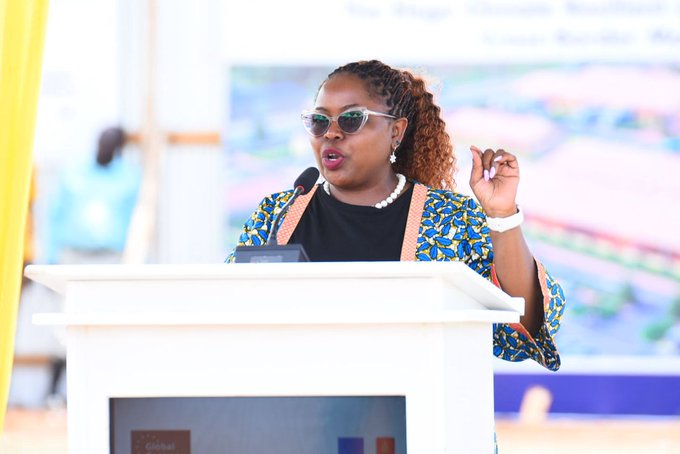
“This market will not only strengthen Uganda’s trade with South Sudan but also create economic opportunities for vulnerable groups — women, youth, and persons with disabilities,” she said. “We thank the European Union, the Government of Denmark, the Amuru community, and local government for their unwavering support in making this project a reality.”
She urged local authorities to prioritise waste management and assured that the market would be completed within two years.
Ms. Sanne Willems, EU Head of Green Transition and Private Sector, said the new facility would end flood-related shutdowns, provide safe spaces for 1,500 traders, and boost women’s participation in Uganda–South Sudan cross-border trade.
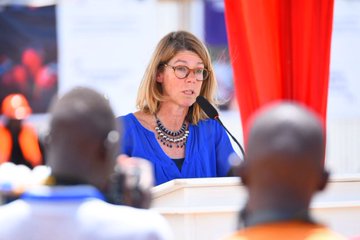
“Under the Small-Scale Cross-Border Trade Enhancement Programme, Team Europe has mobilised USD 11.5 million for infrastructure, trader support, and peacebuilding in the Elegu–Nimule border communities,” she said, emphasising the need for “good governance, regular maintenance, and inclusive management” to ensure sustainability.
State Minister for Trade, Gen. Wilson Mbadi, called the launch of the Private Resilient and Gender-Responsive Cross-Border Market “a milestone in empowering women, youth, and small-scale traders, while boosting trade with South Sudan.”
“This is not only about infrastructure but about creating opportunities, enabling value addition, and promoting sustainable economic growth,” he said. “The Government remains committed to monetising the economy, raising household incomes, and driving export-led growth.”

Mbadi also urged traders to work together to remove trade barriers and described the market as “a platform for peace, trade, and prosperity for Uganda and its neighbours.”
Officials note that informal exports to South Sudan have more than doubled in the past five years, making it Uganda’s third-largest informal trade partner. The new market will feature improved storage facilities, weather-proof infrastructure, and enhanced services to protect commerce against flooding and environmental risks.
The project is funded by the European Union and the Government of Denmark, and implemented in partnership with TradeMark Africa, with the aim of transforming Elegu into a sustainable, inclusive trade hub for decades to come.
